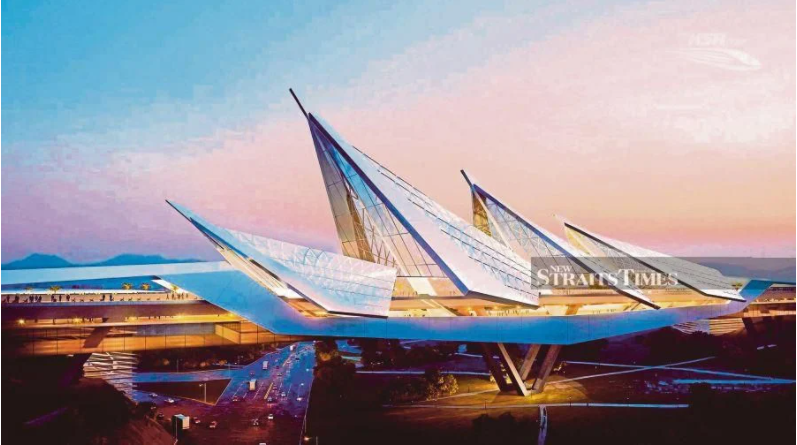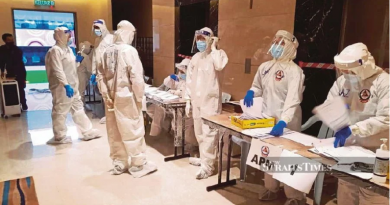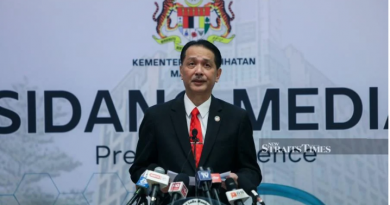‘Compensation for HSR lower than SD270 million’
KUALA LUMPUR: The Kuala Lumpur-Singapore High-Speed Rail (HSR) project was cancelled after Malaysia and Singapore failed to reach an agreement on changes to explore cost-reduction options following the suspension expiry on Dec 31 last year, project owner MyHSR Corp Sdn Bhd said.
Economists, meanwhile, agreed that the compensation to Singapore should be much lower than the reported S$270 million quoted by the republic.
They welcomed potential plans to undertake a domestic HSR.
MyHSR said the changes proposed by Malaysia for the 350km railway project was premised on three parameters, namely recognition of the tremendous socio-economic benefit and catalytic developmental impact.
The changes also included a fundamental need to reduce the cost, while maintaining the 90-minute travel time between Malaysia and Singapore from 11 hours.
MyHSR said changes were proposed to the project structure, including the removal of a private consortium AssetsCo, the project timeline (accelerating the construction and completion timeline), and technical aspects of the project (the track alignment and the station size).
The situation was exacerbated by the Covid-19 pandemic, which forced the government to re-look at the project even harder for more savings.
MyHSR chairman Tan Sri Esa Mohamed said Malaysia needed to make changes based on what was agreed on in the agreement.
“Things were different in terms of the economy between 2013 and 2016, and now it is also different due to the impact arising from Covid-19.
“We have to reassess the cost. Hence, we wanted to review and post some changes in terms of the track alignment, project structure and business model,” Esa said at a briefing last Friday.
Putra Business School business development manager Associate Professor Dr Ahmed Razman Abdul Latiff said the compensation to Singapore should be less than S$270 million.
Malaysia was supposed to reimburse project costs that had been incurred and could not be re-used, such as consultancy, design services, site surveys and operating costs.
“The land acquisition cost should be excluded from this as the land can be used by the Singapore government for other purposes.
“I hope that once Singapore submits the claims, the Malaysian government will perform due diligence to verify these costs,” he told the New Straits Times.
Razman said termination was the best solution for Malaysia considering the domestic situation as it was unable to commit to the high costs.
“There are other priorities now, such as tackling the pandemic and focusing on reviving the economy.”
He said the proposed new solutions should make the project viable as they would reduce cost significantly and remove the government guarantee aspect of the project.
He said unfortunately, the Singaporean government had insisted on continuing with the original proposal, which was prohibitively expensive and would cause the Malaysian government to have a higher debt commitment.
Chartered Institute of Logistics and Transport international president Datuk Abd Radzak Abd Malek believed that the compensation should be for expenses on consultancy, design services and site surveys.
He said Malaysia must look at trimming cost, especially on buildings and stations, making it more practical, seamless and easily accessible.
He added that future HSR project should be planned properly with cost reduction and risk-management with greater participation of domestic companies.
“Tourism industry is part of business activities experiencing a direct impact when efficient and fast transport services are available.
“Local traders, restaurateurs, taxis, homestay and lodging operators will get their fare share,” he added.
Since the suspension of the HSR project in 2018, MyHSR had been instructed by the government to explore options to reduce cost.
It started with changes to the infrastructure (stations sizes and track alignment) and leveraged transport infrastructure to reduce construction cost.
Esa said a major aspect of the HSR project was the additional layer of AssetsCo, an asset-heavy company operated by a private consortium to be appointed by Malaysia and Singapore via an open international tender.
“However, it is an expensive set-up that requires a substantial long-term financial guarantee from the governments to ensure it is bankable,” he said.
He said Malaysia did not favour AssetsCo because the consortium would not operate based on the country’s control and that would post limitations to MyHSR in terms of the structure, financing and options for the project.
“We cannot select options without the concurrent of sovereignty.
“This is the one and only chance (project) that we have to embark on and we should maximise the best that we can for the benefit of our people.”
He believed that Malaysia should take over control of the project as most of the railway spans across 335km in the country.
AssetsCo would have been responsible to supply, install and maintain trains, tracks, power supply, signalling and communication system, and control the movement of trains in Malaysia and Singapore.
Malaysia’s proposal to Singapore to remove AssetsCo followed the international tried and tested model of having only an operating company (opco) and an infrastructure company (infraco).
MyHSR said the procurement of the HSR technology and system would still be the best in class, high quality, safe and reliable following global best practices.
Hence, Malaysia’s revised proposal would allow the country to maximise the use of local resources and contractors, as well as transfer of technology programmes.
Esa added that Malaysia would need to integrate with its other transportation network system for efficiency and connectivity of the people and goods.
MyHSR had proposed integrating the project with the Kuala Lumpur International Airport to allow it to grow as a global connectivity hub, while expanding the country’s domestic transportation network through a connection to Singapore.
Razman said the government could probably upgrade the existing rail network to swiftly increase travelling time.
“I still believe that HSR is the best option as many developed countries have this infrastructure, and economically, they have benefited tremendously from such projects.
“Having such a project will also allow us to build our local talent and technology, which can later be exported to Asian nations.”
Source: NST



